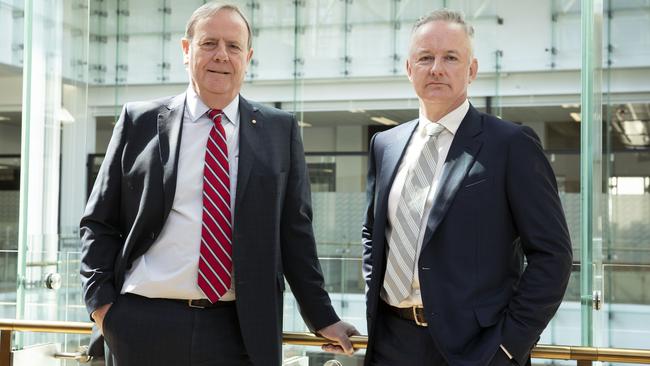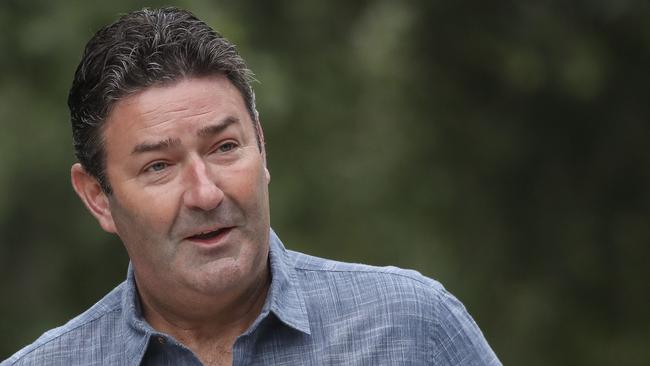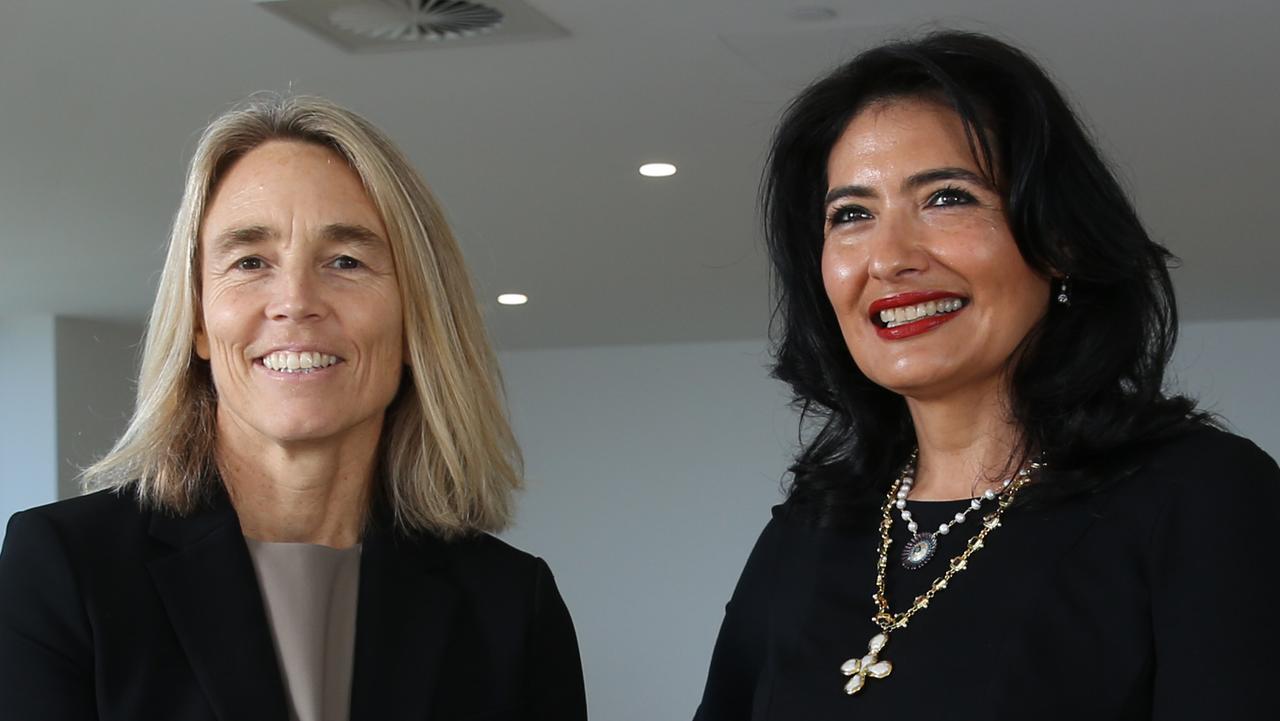
Marks’ departure, hurriedly announced over the weekend, is the latest of a string of high profile cases involving chief executives and staff from former David Jones chief executive Mark McInnes in 2010, to Seven chief executive Tim Worner in 2018 to QBE chief executive Pat Regan this year.
All three cases involved complaints by staffers about the behaviour of the chief executive.
Regan’s departure from QBE followed controversy at the top of the insurance giant in 2017 when his predecessor John Neal had his bonus cut by $550,000 after failing to disclose to the board his personal relationship with his secretary.
In that case it was found his behaviour violated the company’s code of conduct which stated that employees had to disclose to their manager any close personal relationships which could cause a conflict of interest.
AMP was under pressure earlier this year as a result of past complaints against AMP Capital chief executive Boe Pahari by a former staffer.
While they related to occurrences in the past in London, controversy over his appointment saw his demotion back to his former role this year. Fallout from the handling of the matter ultimately triggered the resignation of then chairman David Murray.
Overseas, US executives in particular, are held to strict no fraternising rules with staffers which have seen the departure of McDonald’s chief executive Steve Easterbrook last year and Intel chief executive Brian Krzanich in 2018, following relationships with staffers.
Australian companies have generally been reluctant to set down strict rules on the sensitive area of corporate relationships, preferring to opt for low key policies on staffers in relationships not reporting to each other or chief executives having to report relationships which could cause issues to the board.

But the Marks case – coming on top of a long line of embarrassing and painful corporate controversies over relationships between senior executives and staffers – is a clear signal that management and boards in Australia can no longer avoid having standards and guidelines on the issue.
Relationships in the workplace around the world between staffers across the board are common with many marriages based on couples who met at work sharing a common interest in their profession or trade.
With long hours at the office and frequent travel and trips away from home, senior executives are in many ways more vulnerable to developing relationships at work.
One Sydney woman married to a former banker whose husband is still in the finance industry, told this reporter of spending a weekend at Bowral in the NSW Southern Highlands, realising that all the other couples were senior men on their second marriages, all to their former executive assistants.
Many small businesses are based on successful husband and wife partnerships while ASX listed Harvey Norman has a very public successful partnership between founder and executive chairman Gerry Harvey and chief executive Katie Page.
In not for profit organisations, husband and wife partnerships such as Bill and Melinda Gates and Andrew and Nicola Forrest are common place.
But the workplace for major public companies is a gold fish bowl vulnerable to scrutiny by many stakeholders.
In Nine’s case, it appears that there has been no violation of company policy by Marks but the company has been left vulnerable as a result of the fallout from the relationship.
Just like the political world, times have changed in the business world and the Mad Men behaviour of the advertising world in the sixties is no longer acceptable in the business world of 2020.

There is a world of difference between behaviour which amounts to harassment or perceived harassment off a staffer by their boss or a personal in power and a consensual relationship between two single people working together.
But having clear policies is necessary to head off the first situation and deal with issues arising from the second.
Most companies in Australia these days have clear policies dealing with harassment in the workplace but guidelines about consensual relationships but given the imbalance of power between senior executives and staffers, there can be a fine line between what is consensual and what is inappropriate.
Women’s groups complain that such situations inevitably favour the men with the often lower paid women being forced to leave either to escape harassment or a broken relationship which has become an inconvenient truth for the executive, or to allow their partner to keep (usually) his job.
Sadly not having clear policies can also lead to the departure of two talented executives and the disruption for the company of losing an otherwise trusted and respected chief executive.
With more women speaking up about perceived sexual harassment in the workplace and the rise of the “MeToo” movement, and some high profile law firms now only too pleased to take action against top executives on behalf of angry ex staffers, the risks for companies in not having clear policies in place and structures to deal with employee complaints and executive behaviour is rising.

With most major public under pressure to cut costs, restructuring which includes lay offs, there is now additional fuel for aggrieved staff who have lost their jobs to complain privately or publicly about perceived favouritism or inappropriate relationships by a boss who has the final power over hiring and firing.
While Malcolm Turnbull’s “bonk ban” between Ministers and their staffers, announced in 2018 in the wake of Barnaby Joyce’s relationship between staffer Vikki Campion, was seen as overkill by some at the time, as he explained last week, relationships between married Ministers and their staffers has the real potential to leave them open to blackmail.
In business, the issues range from the potential for executives to make inappropriate or unwanted overtures to staffers, from dealing with issues of an initially consensual relationship going bad (often leading to the departure of the staffer who is most often the woman) to consensual relationships between boss and staffer which leads to conflict of interest and the potential for staff resentment and internal tensions.
The Marks case also highlights the difficulty of keeping sensitive relationships by high profile chief executives secret-another risk issue for boards to consider.
Companies are now on notice that they need to set down some clear rules for the bosses or risk unexpected bombshells.





The resignation of Nine chief executive Hugh Marks after admitting to a consensual relationship with a senior staffer has put Australian public companies on notice to develop clear policies on relationships between senior executives and their employees.